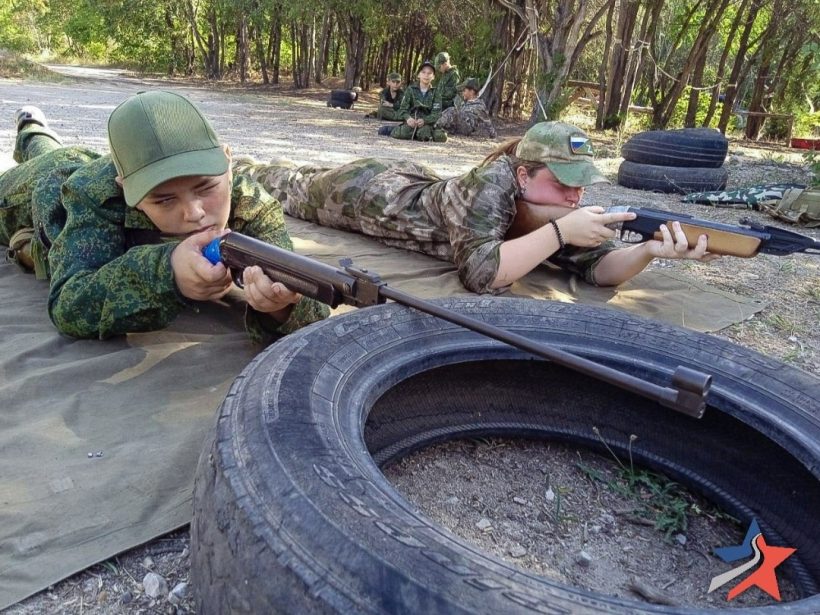

Militaristic Camps and Games Involving Children from the Occupied Autonomous Republic of Crimea and Sevastopol (July 2024)
Summer is a season that the occupation authorities in the temporarily occupied territories (TOT) of the Autonomous Republic of Crimea and the city of Sevastopol actively use to conduct militaristic games and military field training with the participation of children. Such events involve a large number of children, may consist of several stages or shifts, teach children drill, firearms and other types of training, promote service in the Russian army and glorify participants in the so-called special military operation. Thus, in essence, such military training of children from the temporarily occupied territories is a promotion of service in the Armed Forces of the Russian Federation, the aggressor country, which is a violation of international law and international humanitarian law.
Throughout July, children from the occupied Autonomous Republic of Crimea and Sevastopol were involved in various military games and camps, for example:
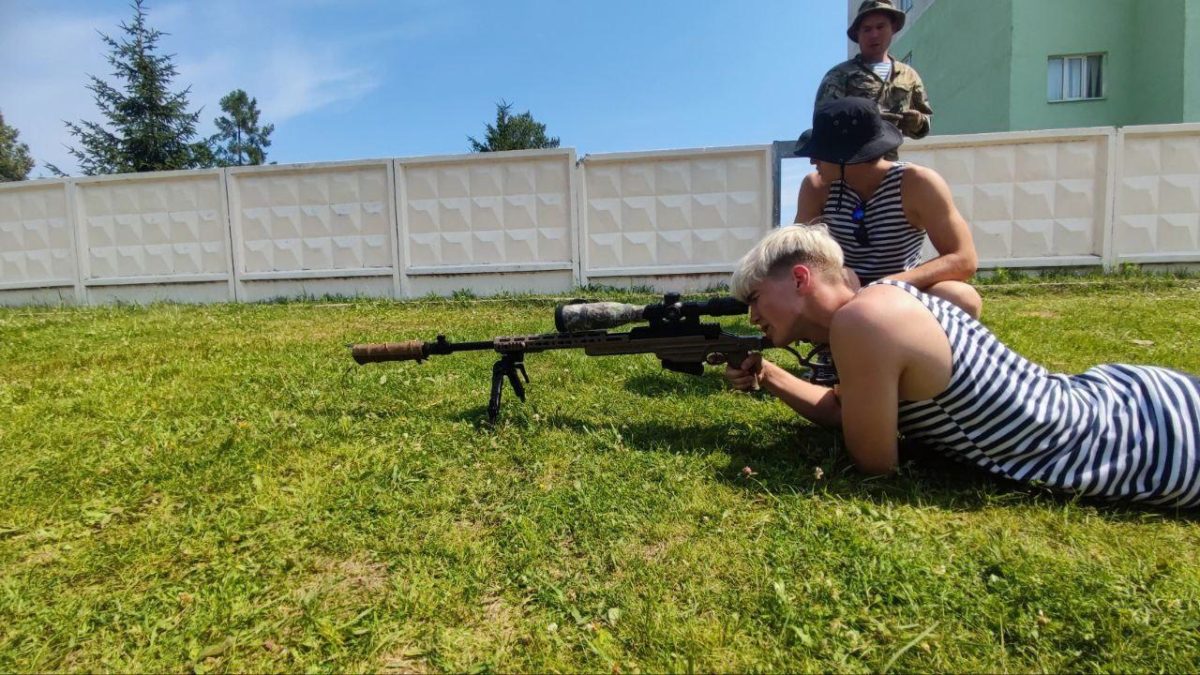

.
- the all-Russian military-sports game “Victory”. The final took place in the Moscow region at the Patriot Military-Patriotic Park of the Armed Forces of the Russian Federation and the Alabino training ground of the Moscow Military District. This game is organized by the “Yunarmiya” movement with the support of the Russian Ministry of Education, the Russian Ministry of Defense, and the “Movement of the First”. Two teams from the occupied Autonomous Republic of Crimea and Sevastopol visited Russia: the Yunarmiya cadets from the “EKOTECH+” school (Sevastopol) and the “Police Cadets” (Autonomous Republic of Crimea). The final included stages such as the “Fire Line” competition and the “Military Relay Race,” as well as a tactical field game called “The Path of the Victors.” Additionally, participants met with members of the so-called special military operation (SVO) and Russian servicemen who have been awarded “high state honors.” They also attended “master classes” in basic military training, UAV control, and more. The “Victory” game is a fully militaristic event aimed at instilling in children military-technical knowledge and skills necessary for military affairs and battlefield situations, a sense of respect for Russian history and belonging to Russian culture, and a positive attitude towards military service in the Russian army. In essence, it serves as a tool for Russia to erode Ukrainian identity and promote service in its army.
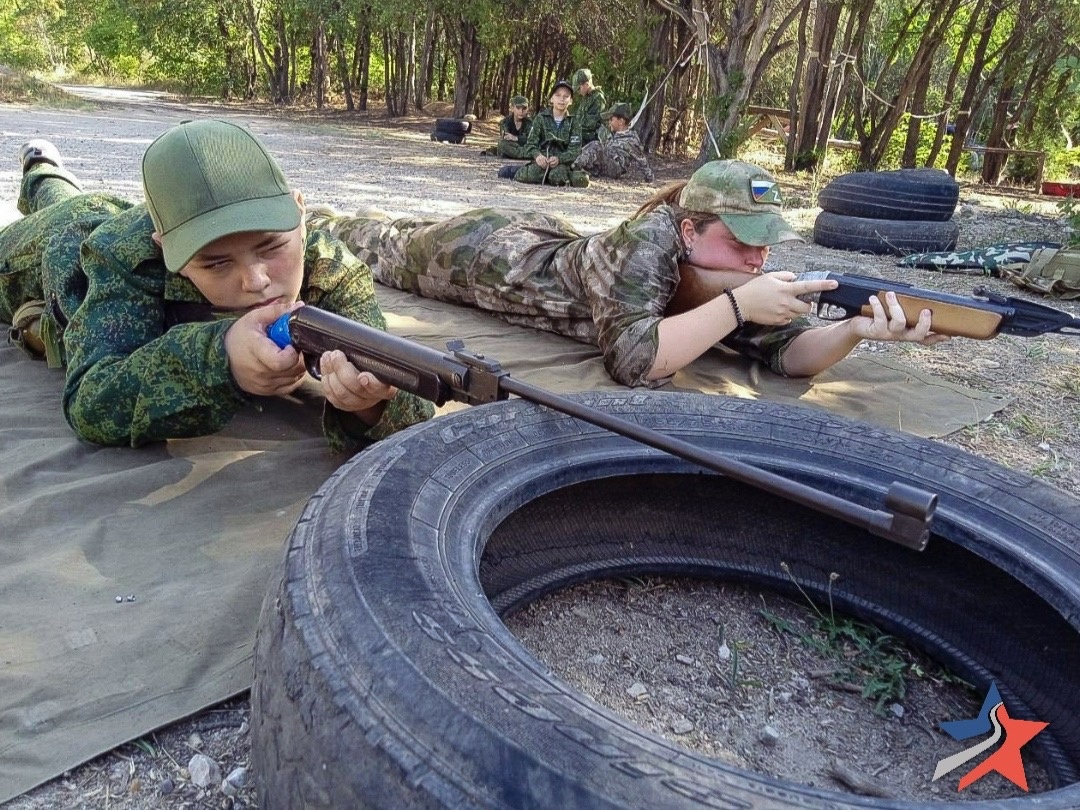

.
- Military field camps organized by “Krimpatriotcenter”: a three-day camp for 95 cadets of the regional sports club “Avangard” (conducted jointly with representatives of the so-called “V.I. Vernadsky Crimean Federal University”); and a one-day camp for children from “Avangard-Yevpatoria.” In both cases, children were taught firearms and tactical training, as well as how to disassemble and assemble an AK rifle, among other skills. During the three-day camp, classes were personally conducted by the head of “Krimpatriotcenter,” Gavrilchuk S.O., who is under international sanctions imposed by the European Union and Switzerland.
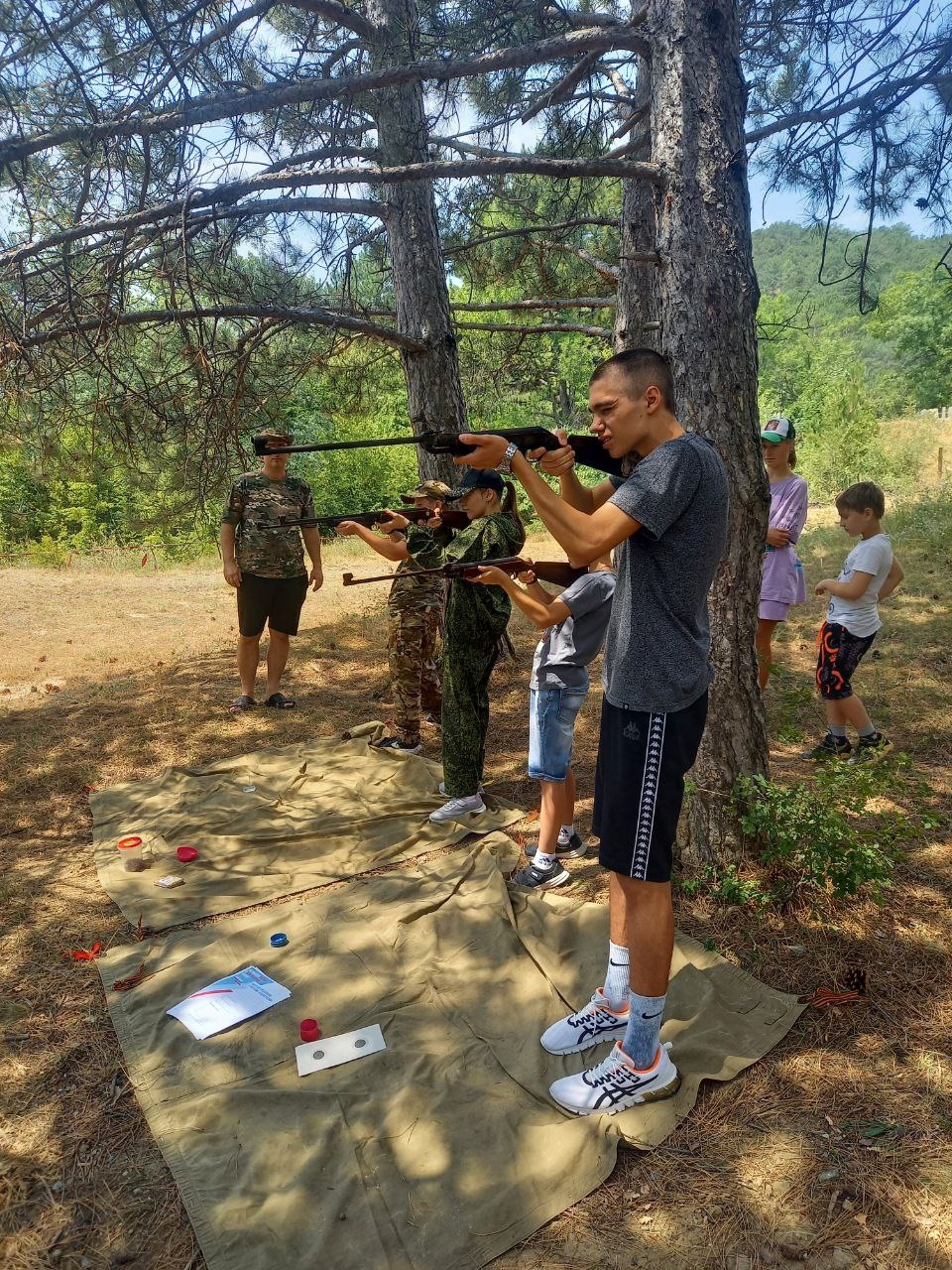

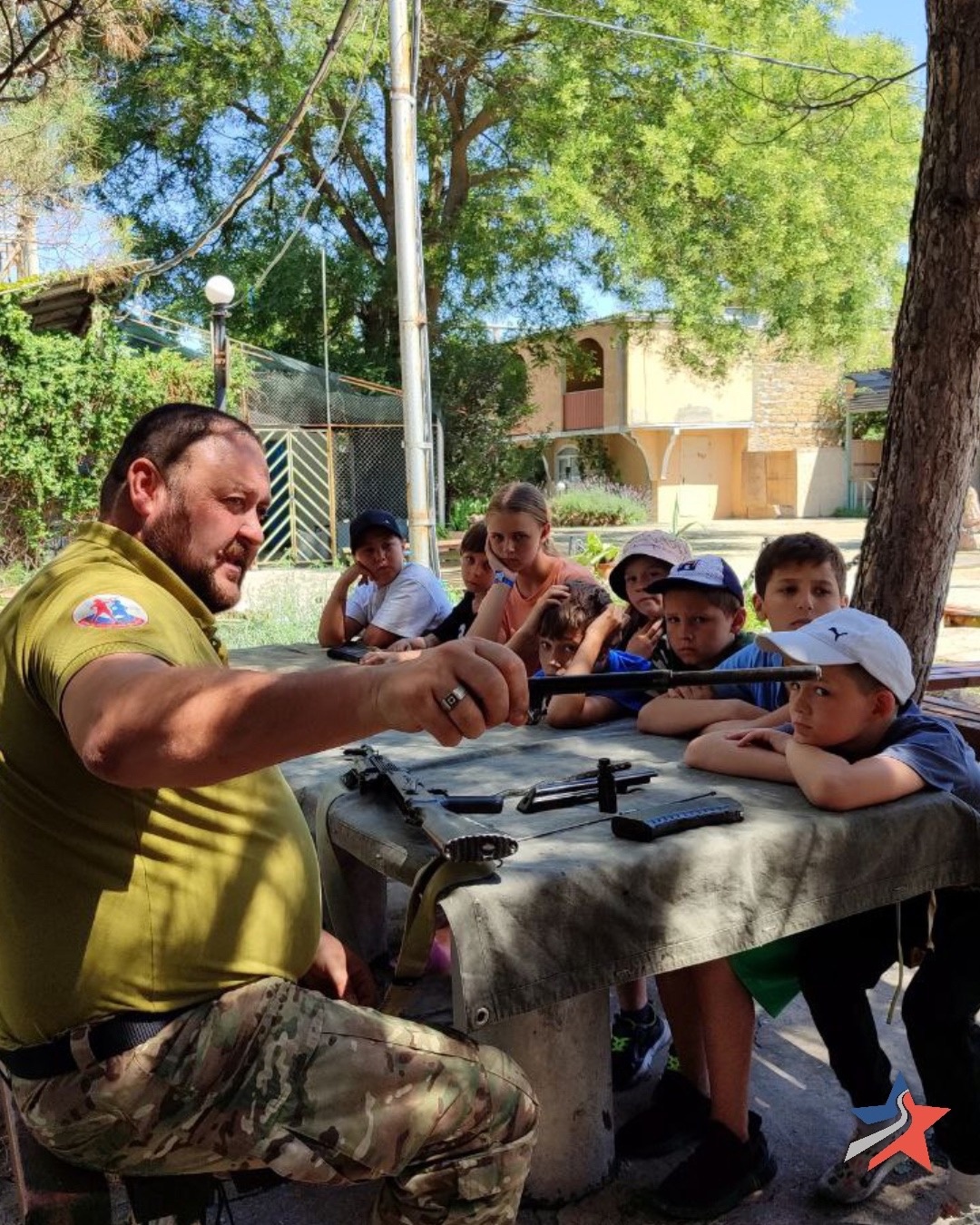

.
- A military-patriotic festival dedicated to the “day of the start of the Battle of Stalingrad during the Great Patriotic War,” organized by DOSAAF in Yalta. Children competed in target shooting with air rifles and participated in a military-tactical team game of laser tag. Teams were awarded certificates by DOSAAF Russia based on their performance. This connection to Soviet symbols and history may lead to children from the occupied Autonomous Republic of Crimea developing a positive attitude towards the Soviet legacy and Russia as its successor. It can result in the identification with Russian history and culture, erasing Ukrainian identity and instead fostering a Russian one.



